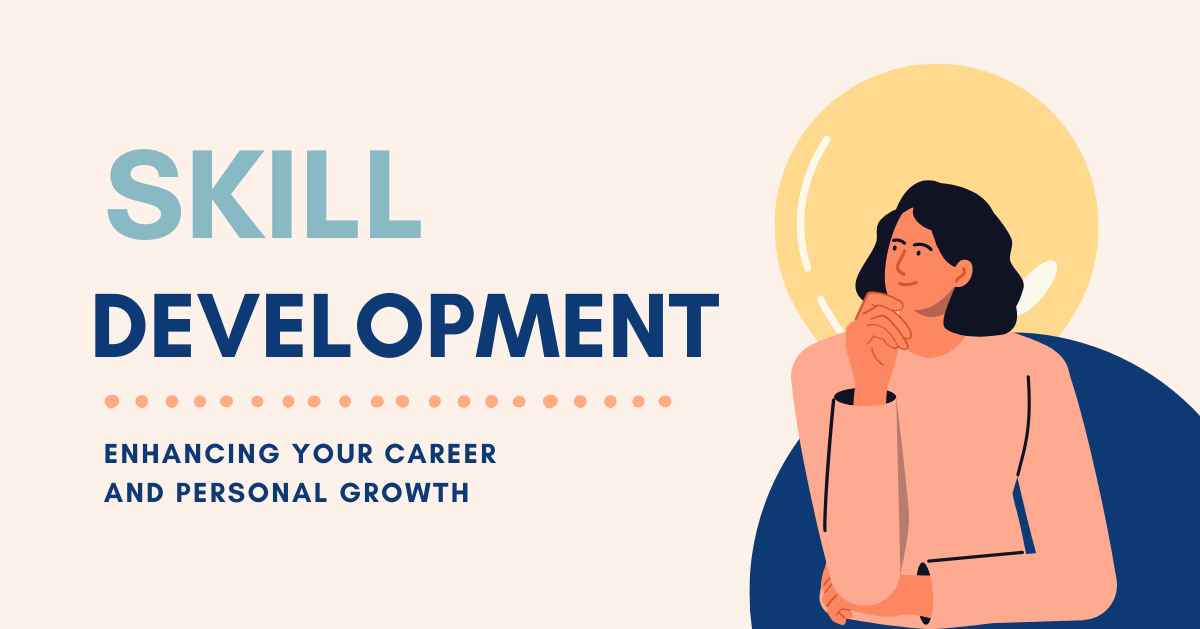In today’s dynamic and competitive world, the significance of skill development cannot be overstated. Whether you’re aiming for career advancement, seeking personal growth, or simply looking to enhance your abilities, investing in skill development is a wise choice. By honing your skills, you not only increase your value in the job market but also open doors to new opportunities and experiences. Let us explore the importance of skill development, practical strategies for improvement, and how to leverage your newfound abilities for success in both your professional and personal life. Let’s embark on a journey of growth and empowerment through skill development.
What is Skill Development?
Skill development involves enhancing specific skills to perform tasks more efficiently and effectively. In the workplace, skill development typically falls into three categories:
- Upskilling: Enhancing your skills within your current role.
- Cross-skilling: Learning new skills relevant to your current role.
- Reskilling: Acquiring new skills to transition into a different role.
However, you don’t need to be part of a workplace program to work on skill development. Whether you’re a college student, dissatisfied with your current job, aiming for a new company, or seeking a promotion, developing your skills can benefit you. You might even do it for personal reasons, such as boosting confidence or improving a hobby.
Steps to Begin Skill Development
No matter your reason for pursuing skill development, here are essential steps to get started:
1. Think About Your Goals
Start by establishing a clear goal. What motivates you to improve a specific skill? Your goal could be related to career advancement, a volunteer opportunity, a personal hobby, educational improvement, or even just to boost your confidence. For instance, if you aspire to become a software developer, you need to determine which skills are crucial for this profession and where you need improvement.
2. Identify Your Skills Gap
Once you have a goal, identify what you need to achieve it. For a marketing professional, several skills are necessary, such as strategic planning, data analysis, and content creation. If you have most of these but lack proficiency in search engine optimization (SEO), a critical skill for modern marketers, focusing on improving your SEO expertise would be essential before applying for jobs.
[Also Read: AI in Education Sector: Revolutionizing Learning with Artificial Intelligence]
3. Target Specific Skill Areas
Skills can be broadly divided into human skills (soft skills) and technical skills (hard skills).
- Human Skills: These are essential for interacting with others and solving problems. They include communication, time management, adaptability, creativity, critical thinking, and teamwork. While often subjective and harder to quantify, they are crucial for workplace success.
- Technical Skills: These skills are more tangible and quantifiable. For example, proficiency in typing can be measured by typing speed, and social media skills can be demonstrated through engagement metrics on accounts you manage.
4. Expand Your Network
To develop your skills, observe how others excel in them. Expand your network to include professionals who are adept in areas you want to improve. If you’re a college student aiming to enhance social media skills, connect with a digital marketing company or reach out to successful journalists on social media. Engaging with experts and seeking mentorship can provide valuable insights and practical tips.
5. Get a Coach
If reaching out to professionals directly feels critical, consider hiring a coach who specializes in the skills you want to develop. Though potentially more expensive, coaching can offer personalized guidance and accelerate your skill development.
6. Read and Research
Immerse yourself in resources related to the skill you wish to improve. For social media skills, for instance, explore books, articles, educational videos, and podcasts. Consuming high-quality content will deepen your understanding and keep you updated on the latest trends and techniques.
7. Take Courses and Undergo Training
Enrolling in courses can provide structured learning and practical exercises to enhance your skills. Platforms offer various classes on social media. Such courses can provide valuable knowledge and practice opportunities.
8. Seek Certification
Certifications have the power to validate your skills and elevate your resume above the rest. For in-demand skills like social media, certifications from reputable organizations can provide credible evidence of your expertise.
9. Practice
Consistent practice is essential for mastering any skill. Apply what you’ve learned by actively using your skills. For example, if you’re honing your public speaking abilities, regularly seek opportunities to present in front of others, whether it’s at work meetings, community events, or Toastmasters clubs. Seek feedback from peers, mentors, or coaches to identify areas for improvement and adjust your approach accordingly.
Highlighting Your Skills on Your Resume
Once you’ve developed your skills, it’s essential to effectively showcase them on your resume. Here’s how to do it:
1. Create a “Skills” Section: Add a dedicated section on your resume titled “Skills.” This makes it easy for employers to see what you bring to the table at a glance.
2. Separate Human and Technical Skills: List your human skills and technical skills separately. This aids employers in swiftly recognizing the breadth of your capabilities.
3. Be Specific and Quantifiable: For technical skills, provide concrete examples or metrics to demonstrate your proficiency. For instance, instead of saying “proficient in coding,” you could say “developed and deployed a web application with 10,000 monthly active users and a 4.5-star rating on app stores.” This specificity not only showcases your abilities but also provides tangible evidence of your expertise in the field.
4. Prepare for Verification: Be ready to provide evidence of your skills during the interview. For technical skills, bring along certificates or demonstrate your work. For human skills, prepare examples of how you’ve applied these skills in real-life scenarios.
Conclusion
Skill development is an ongoing process that significantly impacts both your career and personal growth. By setting clear goals, identifying skill gaps, and actively working to improve both human and technical skills, you can enhance your employability and achieve your professional aspirations. Moreover, effectively highlighting these skills on your resume can distinguish you from other candidates, making you a more attractive prospect to potential employers.
Whether you’re just starting in your career or looking to advance, investing time and effort in skill development is invaluable. Remember, the journey of skill enhancement is continuous, and each step you take brings you closer to your goals.





